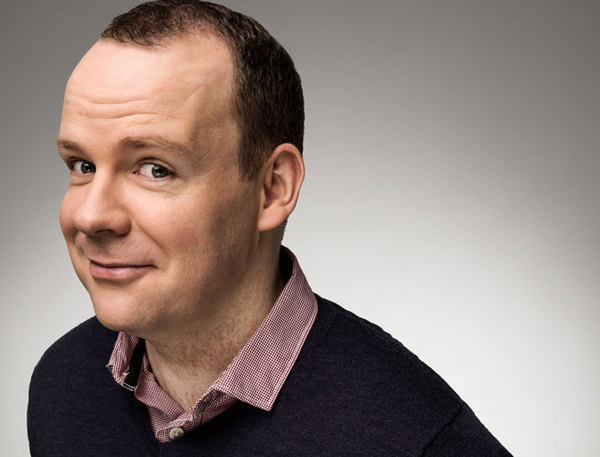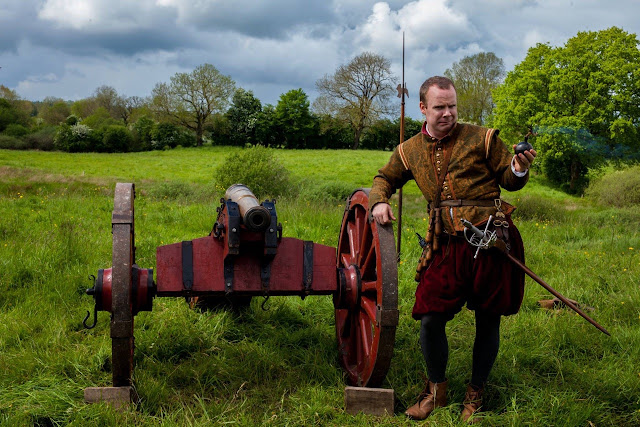Gilded Balloon at the Museum
Aug 8-12 9.00pm
The Gilded Balloon, Lisa Richards and Off The Kerb present Neil Delamere in Ctrl Alt Delamere at the National Museum of Scotland from Friday 5 (preview) to Friday 12 August as part of the 2016 Edinburgh Festival Fringe.
Neil Delamere, one of Ireland’s stand out comedians and TV stars, promises a comedy hour brimming with hilarious tall tales from both TV filming and married life when he returns to the Edinburgh Festival Fringe after a two year absence.
The quick-witted Dublin-based comic, famous for his banter with the audience and razor sharp observations full of style, smooth delivery and near-perfect timing, can’t wait to make the National Museum of Scotland his home in August.
“I’m looking forward to performing in a museum. The good news is the show finishes at 10 and if I’ve learned anything from films, the museum will come alive shortly after that. I’ll have a pint with Teddy Roosevelt and Genghis Khan if it doesn’t go well.”
Having taken time out from the Fringe to film death defying and scary and unpleasant stunts for a TV science panel show and history documentaries, Neil Delamere will be going behind the scenes with some rib-crackingly funny moments that never made it to air. Expect tips on how to how to use a sword, survive a bobsled ride as well as how to stay conscious in an astronaut training centrifuge or pretend to enjoy weightlessness in a plane that is plummeting to earth.
Having taken the marriage plunge in 2014 Neil’s eventful honeymoon, climbing mountains in Peru, will also take centre stage in Edinburgh, hopefully a process of catharsis for both Neil and his wife.
With stellar reviews, sell-out stand-up tours and platinum-selling DVDs to his name, award-winning comedian Neil Delamere is one of the top acts working in the Irish comedy scene today. His 10 part science series Eureka was recently broadcast on RTE 2 and he is also back in the hot seat with the 11th season of BBC’s The Blame Game, at the end of 2016.
What was the inspiration for this performance?
I haven’t been to the Fringe for a couple of years and the current show is about what I’ve been up to in the interim. It’s been an eventful couple of years. I got married, fired machine guns on my honeymoon (because what screams romance more than an AK47) and made two TV series. The second TV series was a science comedy show that featured me doing various stunts that were meant to demonstrate a scientific principle or invention. I bet no-one else’s Edinburgh show will be about surviving a centrifuge used to train astronauts in Poland or which way to lean when hurtling down a bobsled track with the German youth bobsled champions.
How did you go about gathering the team for it?
There is no team. As with most stand-up shows it’s all dreamt up by the one, possibly deluded soul. A few friends of mine have recently collaborated with directors on their Fringe shows. That is definitely something I would like to try in the future. I think it depends largely on the sort of show you have produced. Obviously the closer to theatre a comedy show is the more sense it makes to have a theatre director’s input. That said, it always good to have a second pair of eyes look over a project.
Of course the fact that I’ve said there is no team entirely ignores the elephant in the room, that is previous audiences. Really, they are the other people who have shaped the show long before it arrived in Edinburgh. It’s the only art form that I know that is formed like this. Other shows/exhibits/installations are usually presented fully formed. Sculptors don’t do a work in progress sculpture, assess the audience’s reaction to it and modify it and present it again the next night for the crowd’s delectation. Sculptors rarely flier too.
How did you become interested in making performance?
I was always attracted to the idea that one person can entertain a group of strangers using nothing but words and their (the audience’s) imagination.
I have presented radio and television shows and massively enjoyed the collegiate atmosphere working on them because they are in marked contrast to the largely solitary process of creating stand-up. However, their limitations also become evident. If I want to do a sketch on television about a green elephant suddenly an entire production machine has to swing into action. Where will we get this elephant at this short notice? Do we really need it? Can we get a normal elephant and paint it green? Can we use CGI? Would a hippo work?
If I decide to talk about a green elephant in stand-up I’m only limited by my imagination and vocabulary. I find that idea amazing and intoxicating. It is so limitless that I sometimes fell guilty for only talking about normal things.
Was your process typical of the way that you make a performance?
I think so yes, in that you have ideas, get in front of people and try them and chip away. It can be different if you have a more thematic structured show as I have in that past with various elements of video and audio. This show is looser and allows more room to manoeuvre.
What do you hope that the audience will experience?
It’s a very simple aim, distraction and escapism for an hour. I just want the audiences to laugh and enjoy themselves for an hour. There is no underlying aim, no larger more noble goal. It is not an hour seeking to shed some light on the human condition. It is an hour or jokes and stories. If they laugh a lot I’ve succeeded.
Nothing out of the ordinary.
Do you see your work within any particular tradition?
That is probably easier for others to decide. I have noticed that Irish comedians tend to be grouped as storytellers for whatever reason. I don’t disagree with this at all. Whether that happens because of something endemic in our culture or because the smaller population results in comics tending toward a mean I don’t know. We would have fewer very niche comedians if you get my meaning. I do think there are subtle differences in Ireland versus the UK in their appreciation of certain aspects of humour but discovering those minute differences is very interesting.




No comments :
Post a Comment